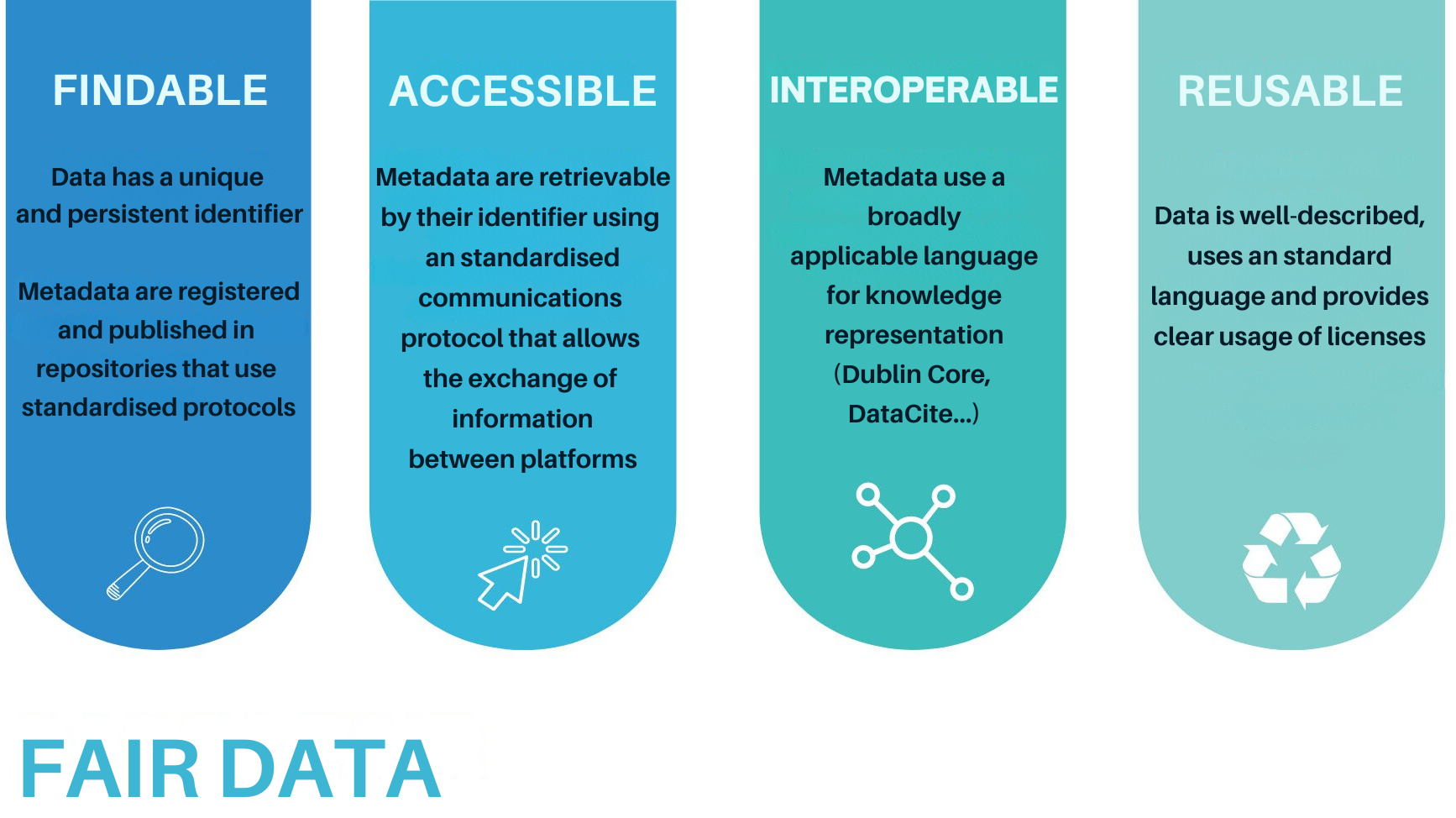Planning
Define the elements you need to consider to manage the data:
Planning
The data management plan (DMP) is a formal document that outlines the data generated or collected during a research project's lifespan, along with strategies for managing them during and after the project's completion. As a living and versionable document, it can be updated and modified throughout the project's life.
To create a data management plan, you can use the CORA.eiNa DMP, a free tool developed by the Consortium of University Services of Catalonia (CSUC), which offers various templates depending on the funding entity. For guidance on how to use the tool, you can refer to a video tutorial developed by the Pompeu Fabra University (UPF).
If you wish, or it is required, for your final Data Management Plan to be published in open access, there is a specific collection at Dipòsit Digital de Documents de la UAB (DDD).
If you have any doubts about the preparation or publication of the DMP, contact your reference library through Pregunt@.
If you're a doctoral student, we recommend consulting the "Guide to Prepare a Data Management Plan" created by the CSUC research support working group.
You can also access a specific template for preparing your DMP linked to your thesis on CORA.eiNa DMP, a free tool developed by CSUC.
To better understand the benefits of creating a DMP and how it can help organize the research data of your thesis, we suggest watching a video created by UPF, aimed specifically at doctoral students.
The Universitat Autònoma de Barcelona has an institutional policy on open access to research data, which was approved by the Council of Government on December 14, 2022. As per this policy, teaching and research staff, as well as doctoral students who work with research data during their research, are encouraged to make their data publicly available upon completion of their research. This can be achieved by depositing the data in a trusted repository such as CORA. Research Data Repository or any other thematic or multidisciplinary repository.
In accordance with the requirements of European and state research programs, publicly funded projects must comply with certain data management standards. This includes the creation of a data management plan, which should be deposited in a repository, as well as the obligation to make scientific publications and research data available in open access, whenever possible. The research data should also adhere to the FAIR principles, which means that they should be Findable, Accessible, Interoperable and Reusable.

There are free tools that assess the FAIRness of the datasets.
Promoting open access to research results, including publications, data, codes, and methodologies, is a key aspect of the state law on science, technology, and innovation published in 2022.
To learn more about legal mandates and funding agencies:
- Law 17/2022 of September 5 on science, technology, and innovation (in Spanish)
- State Plan for Scientific and Technical Research and Innovation 2024-2027 (in Spanish)
- Open Science National Strategy (ENCA) 2023-2027 (in Spanish)
- Organic law 2/2023, of March 22, on University System (in Spanish)
- Horizon Europe program of the European Commission
In addition to legal mandates and funding agency requirements, it is important to respect the editorial policies of scientific publishers. Many publishers require that the data underlying research results be made publicly available in open repositories to facilitate peer review, reproducibility, and increase trust in science
Examples of editorial policies:
Related initiatives open access
-
Funding for open access publishing
-
ReDi UAB Journals
-
Access to free scientific articles
-
Open access monographs
-
Publishing research output
-
Open Education Resources (OER)
-
Open Access Week
-
Open Education Week
-
Submit documents to the DDD
-
Submit datasets
-
All Open Access initiatives
This link opens a new window